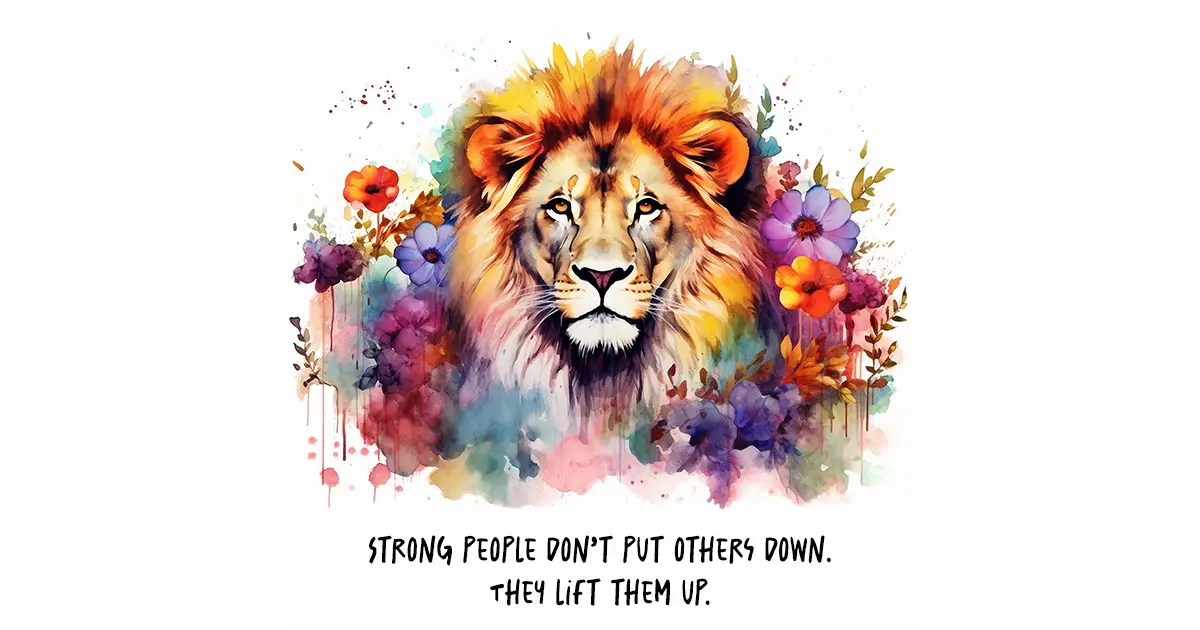I recently came across a quote that really resonated with me:
“STRONG PEOPLE DON’T PUT OTHERS DOWN. THEY LIFT THEM UP.”
I wish I had learned that earlier in life. Maybe then I wouldn’t have spent so much time trying to understand why people who claimed to care about me made me feel so small.
I know what it’s like to be put down emotionally, mentally, and in moments when I was already struggling to hold myself together. I’ve been made to feel like my voice didn’t matter, like my dreams were unrealistic, like I wasn’t enough. And for a long time, I believed those things. But here’s the truth: they weren’t strong. They were insecure. And insecurity tries to dim others just so it can feel brighter.
Why do people put others down?
People don’t put others down because they’re strong. They do it because something inside them feels lacking. Insecurity manifests in various ways, often through a need for control, inflated ego, or underlying fear. Unfortunately, some people need to feel superior, especially when they’re feeling small inside. Instead of working on themselves, they tear others down to distract from their own pain or failures. They often target those who are kind, gentle, or simply different, assuming that quiet means weak, that softness is something to exploit. But they couldn’t be more wrong.
It takes real strength to stay gentle in a world that tries to harden you. The people who choose compassion over cruelty, especially when they’ve been hurt, are some of the strongest people you’ll ever meet.
When kindness is misunderstood as weakness
Kindness is often misconstrued as weakness, especially in a world that frequently rewards aggression and dominance. We’ve been conditioned to equate strength with being aggressive, loud, and dominant, leading to the belief that a lack of assertiveness makes us vulnerable to others taking advantage of us. Instead, aggression fuelled by fear often stems from a defensive mechanism, a mask concealing underlying insecurities, rather than true strength.
The real test of strength shows up when we face hostility. It’s in choosing compassion and restraint when everything inside us wants to lash out. To stay composed, to remain grounded when the urge to react is strong, takes a kind of inner strength that’s hard to describe. But it’s in those moments, when we consciously choose kindness over anger, that we reveal the true depths of our strength.
How to deal with people who put you down
So, how can we navigate these challenging interactions? Here are some strategies to help you maintain your peace and strength:
Don’t internalise their words. Remember, their words often reflect more about their own perspectives or insecurities than they do about you. Their judgement is not a reflection of your worth.
Set boundaries. Protecting your mental and emotional wellbeing is essential. Limit access to those who drain your energy. Disengage. Say no. Distance is a form of self-respect.
Maintain your own sense of self. Don’t diminish yourself to make others feel more secure. Your confidence should not be compromised by the insecurities of others.
Respond with dignity. You don’t need to retaliate with negativity. Defending yourself with grace preserves your integrity and demonstrates true strength.
Seek support from trusted individuals. Talking to a friend, family member, or therapist can provide valuable perspective and emotional support during challenging times.
Remember, you have the power to choose how you respond to negativity and who you allow into your life.
Final words
You’re not too sensitive. You’re not weak. And you’re not alone. There’s real strength in surviving, in rising after you’ve been knocked down, and in choosing to be kind when the world can be so unkind.
If you’ve ever had to pull yourself out of a place where someone tried to tear you down, know this – you now have the strength to help lift others up too. Because being strong doesn’t mean standing over people. It means standing with them.
That’s the kind of strong I believe in.
That’s the kind of strong I want to be.
We’re all navigating these experiences in our own way. What are your reflections on this topic, and have you found these tips helpful in your journey? If you feel comfortable, please share your thoughts in the comments.
If you feel this message could offer comfort to someone, please share it.
Love,



